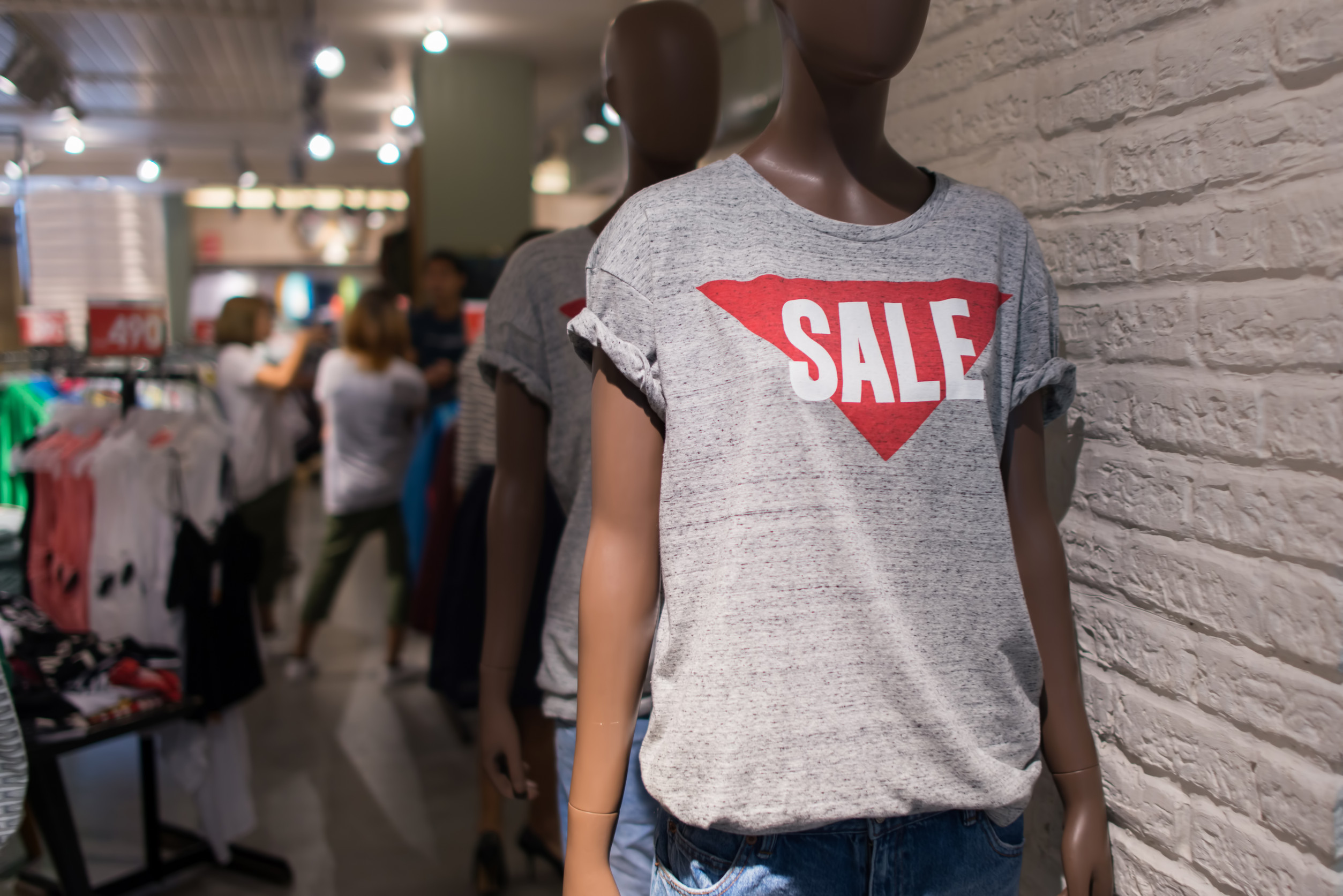
Everyone loves a bargain, but not every discount or promotion is as honest as it seems. Behind the flashy signs and limited-time offers, some businesses use tactics that skirt—or even break—consumer protection laws. While you might think you’re scoring a great deal, you could actually be getting misled. Knowing which practices cross the line can help you shop smarter and avoid being taken advantage of. Here are nine store promotions that may be violating consumer law without you even realizing it.
1. Fake “Original” Prices
One of the most common deceptive store promotions involves inflating the original price to make a discount look larger. For example, a jacket might be advertised as “50% off $200,” when in reality, it was never sold at $200. This tactic is considered false advertising under federal and state laws. Retailers are required to list truthful “before” prices to support their claims. If the discount is based on fiction, it’s breaking the law.
2. “Buy One, Get One Free” That Isn’t Free
Shoppers love BOGO deals, but sometimes they’re not as generous as they appear. Some retailers quietly raise the base price of the item before offering it in a buy-one-get-one deal. Legally, this misrepresentation can be seen as deceptive because the second item isn’t really free. Instead, the customer pays for the discount through inflated pricing. This kind of misleading tactic puts many BOGO-style store promotions in legal gray areas.
3. Rebates That Are Nearly Impossible to Claim
Rebate offers are famous for giving buyers the runaround. While a discount is promised, claiming it may involve filling out lengthy forms, mailing documents, and waiting months. Many customers never see the rebate at all, which regulators consider an unfair practice. Laws require rebate terms to be clear and attainable. If a promotion is designed so that most customers fail to benefit, it may violate consumer law.
4. Limited-Time Offers That Never End
You’ve probably seen a “One-Day Sale” sign…only to see the same sign still up weeks later. Some stores use urgency as a tactic, suggesting scarcity when there isn’t any. Consumer protection laws prohibit false or misleading time limits. If a limited-time offer is actually ongoing, it can be classified as deceptive marketing. These endless “flash sales” are among the shadiest store promotions out there.
5. Gift Cards With Hidden Expiration Dates
Gift cards are popular promotions, but some come with fine print that cheats the buyer. In the U.S., federal law requires most gift cards to remain valid for at least five years. However, some stores impose earlier expiration dates or hidden fees. This practice violates consumer law by stripping away value unfairly. When promotions involve gift cards, always check the terms.
6. Misleading “Free Trial” Promotions
“Free trial” offers often hook customers with the promise of no risk, only to trap them in automatic billing cycles. If terms aren’t clearly disclosed, this is a violation of consumer protection laws. Regulators require companies to provide upfront details about costs and cancellation processes. When customers are blindsided with recurring charges, the promotion crosses into illegality. This is one of the most frustrating store promotions for consumers.
7. “Up To” Discounts That Rarely Apply
Ads promising “up to 70% off” can be legal—but only if a reasonable number of items are actually discounted that much. When only one or two products receive the full discount while the rest barely budge, it’s deceptive. Consumer law requires accuracy in how discounts are presented. If the average discount doesn’t reflect the advertised percentage, the promotion is misleading. These exaggerated claims are common in clearance events and outlet stores.
8. Loyalty Rewards That Disappear Overnight
Many retailers push loyalty programs, promising points that can be redeemed for discounts. But if the store changes the rules without notice—like devaluing points or canceling balances—it may break the law. Consumer contracts must be honored in good faith. Sudden changes that wipe out rewards are unfair and can draw regulatory attention. Loyalty perks are appealing store promotions, but only if they’re honored fairly.
9. Hidden Fees in Travel and Hotel Promotions
Travel-related promotions are notorious for hiding extra fees. An advertised “$99 hotel stay” can balloon with resort fees, cleaning charges, and service costs that weren’t disclosed upfront. Consumer protection laws require full transparency about pricing. Misleading customers with hidden fees is both deceptive and illegal. This makes certain travel ads among the worst offenders when it comes to store promotions.
The Truth Behind Too-Good-To-Be-True Deals
Not every sale is dishonest, but it’s important to recognize when a “deal” crosses into illegal territory. Many of these store promotions are designed to create urgency, mislead on value, or bury terms in fine print. By staying alert, reading details, and knowing your rights, you can shop confidently without falling for unfair tactics. The next time you see a flashy sale sign, you’ll know how to spot whether it’s truly a bargain—or a violation of consumer law.
Have you ever fallen for one of these misleading store promotions? Share your story in the comments—I’d love to hear your experience.
What to Read Next…
- 9 Brands That Lost Consumer Trust in Just One Year
- Are Pre-Weighed Packages Even Accurate Anymore?
- 10 Products That Only Exist Because of Consumer Complaints
- 10 Things Grocers Do That Violate State Pricing Laws
- 9 Products That Were Quietly Pulled After Consumer Complaints
The post 9 Store Promotions That Are Actually Violating Consumer Law appeared first on Grocery Coupon Guide.







